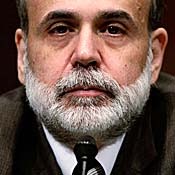Quite possibly the most important element of any economy is whether or not people have a job.
Well, not to say that it was entirely unexpected, but unemployment has gotten worse, especially here in California, where, the U.S. Department of Labor reports, is back up to 12 percent, second-highest in the nation, exceeded only by Nevada. Nationally, unemployment is down a tick, to 9.1 percent, from 9.2 percent in July. And to be clear, these numbers don't include the discouraged and under-employed, which would likely add another ten points or so to that, at least in California. Totalled, that's almost a quarter of the workforce.
The unemployment rate for African-Americans is even higher, as nationally, 15.9 percent of blacks are without work. Evidence for this could be seen in Georgia today, where, according to ABC News, "thousands camp[ed] out in their business suits and office heels and brav[ed] the tormenting heat in Atlanta to stand in line for a job fair" sponsored by the Congressional Black Caucus. Authorities had to treat 20 people for heat exhaustion.
To make matters even worse, Bank of America, one of those Corporations once called, "too big to fail", announced plans to cut up to 10,000 jobs in it's endeavors to restructure. This is on top of roughly 2,500 job cuts already this year for BofA.
On the brighter side (in an attempt to find a brighter side, amidst such bleak news of late), to be sure, unemployment isn't as high as the national rate everywhere. North Dakota's unemployment is at a meager 3.3 percent. Nebraska's is only 4.1 percent. And South Dakota's stands at 4.7 percent. Only thing is, there are more people in California than there are in all three states combined. Maybe the reason why there are so many unemployed, is because so few people want to live there.





